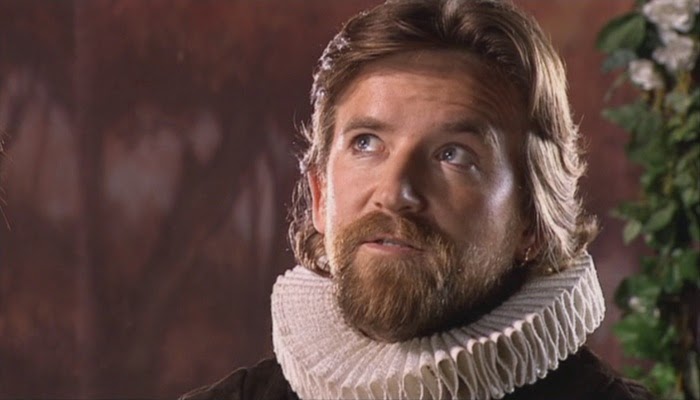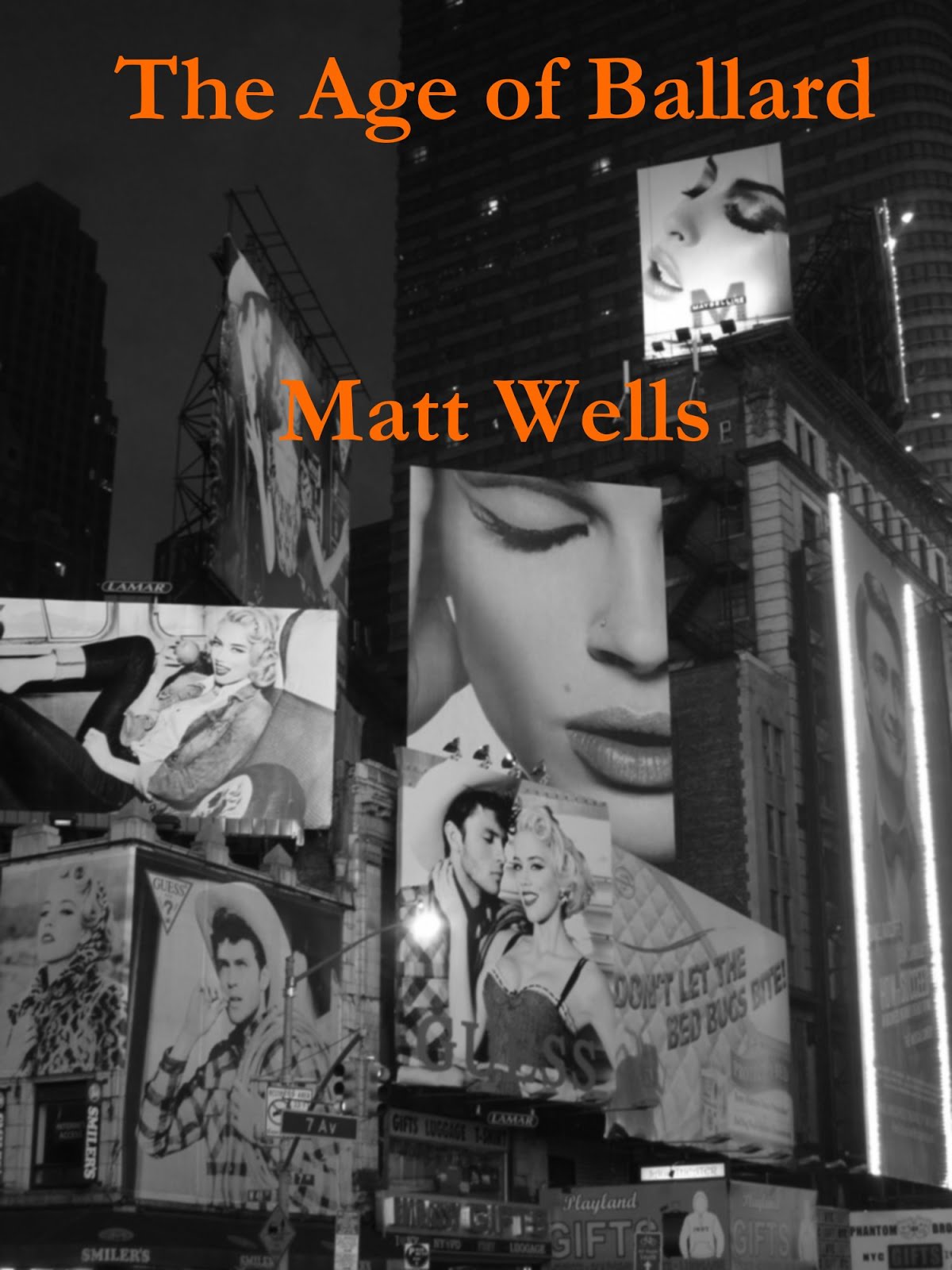Dean Lennox Kelly as WS in Dr. Who's The Shakespeare Code
Dear Will:
Felicitations on your birth
from one who never met you on this earth
except through what you wrote to make a living—
those plays and poems that just keep on giving
the world great pleasure, and professors jobs—
the ones that in your day pleased both the yobs
and the entitled, like a perfect gem
that each group thought was mined only for them.
A trick that all your plays perform so neatly—
and yet the same trick seems to be completely
beyond your fellow poets, never mind
the modern ones, who all trail far behind
you like the field trailed Secretariat
during the Belmont.
And while some have wit,
and some have heart, and some have poetry,
and some have depth or heights you cannot see,
nobody seems to have it all, the way
you do—and damn, you only wrote a play
to make a buck, not statements—though you did
manage to let a thorn or two be hid
among the roses. But
you always made
those thorns the living stem your actors played.
A rose without a thorn is not a flower;
each tests the other, like the sweet the sour.
And that is why I think all of your plays
still have the inner power to amaze—
a field where actors harvest what you’ve sown
until they find a thorn to make their own.
And why? Well, it
all comes down to the writing.
God knows, a life can be dull or exciting,
but nobody will ever wonder how
Writer X acted centuries from now
unless he leaves some work behind that lives—
something that still seems fresh, something that gives
an insight or an echo, something true.
Do that, and he could be our age’s you.
Did you have that in mind, I wonder, when
you scribbled cursive with your ink-nibbed pen?
Did you write for posterity? Y’know,
if I had to put cash on it, I’d go
with you just writing what you knew would be
popular, and surf a trend wave or three,
yet deep enough beneath all that to make
people come back to see it, for the sake
of box office, not fame.
That’s how ‘twas done
back then—a new play never got a run;
it only got produced due to demand.
And knowing that was why you turned your hand
to write the way you did—to make what dunce
to sage can stand to sit through more than once—
because each time you played that verbal score,
it contained notes they’d never heard before.
Who writes a play like it’s a symphony?
You did—and that’s why you’re hearing from me
and half the English-speaking world today.
You spent your brief adult life writing play
after play that makes the writer in me
consumed not just with bitter jealousy,
but sweet ambition.
One of them’s my rose,
the other is my thorn; and both of those
would not exist in me if not for you.
So thank you, Will, for all you did and do.
I’m really glad that you were born.
Matthew




